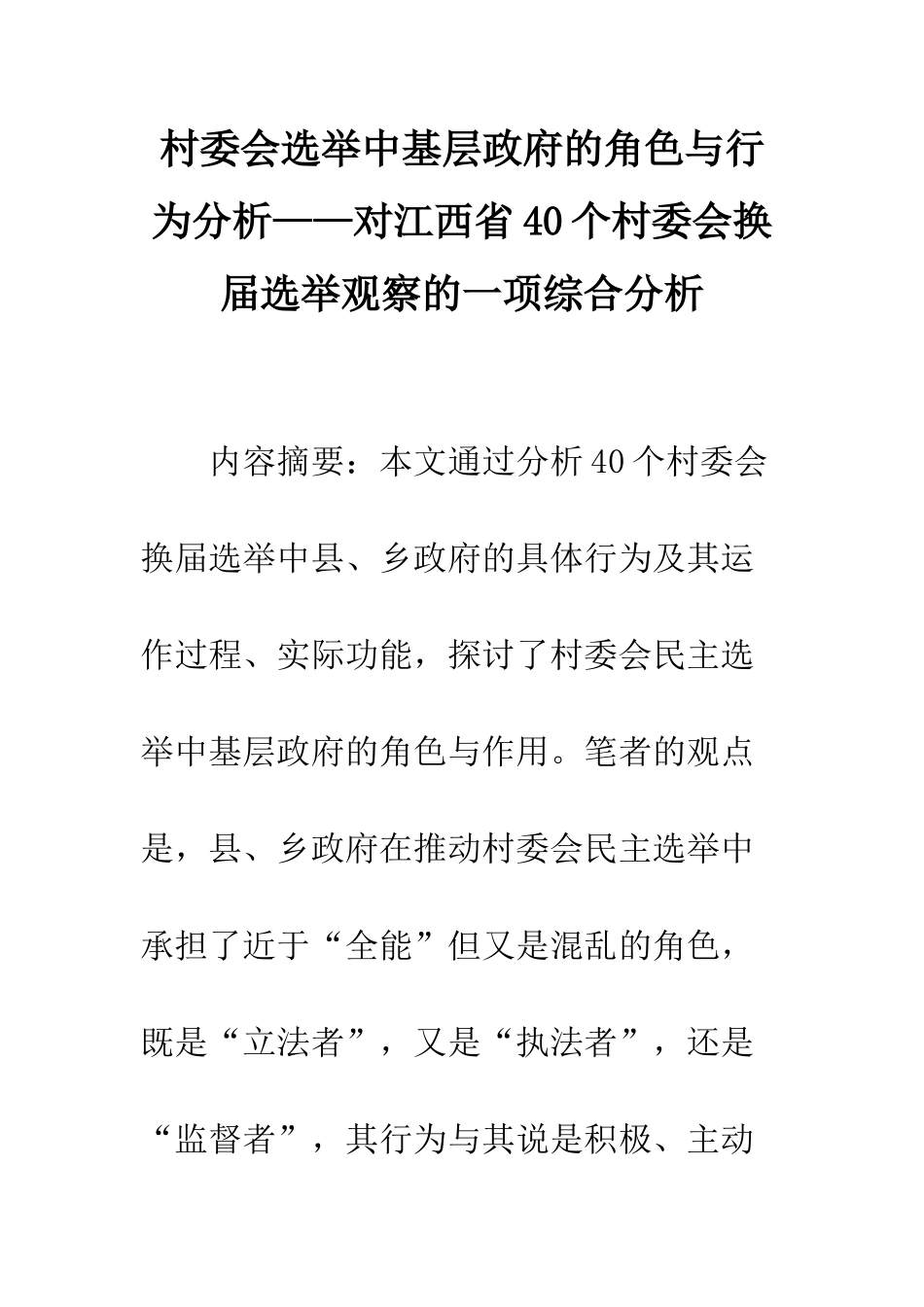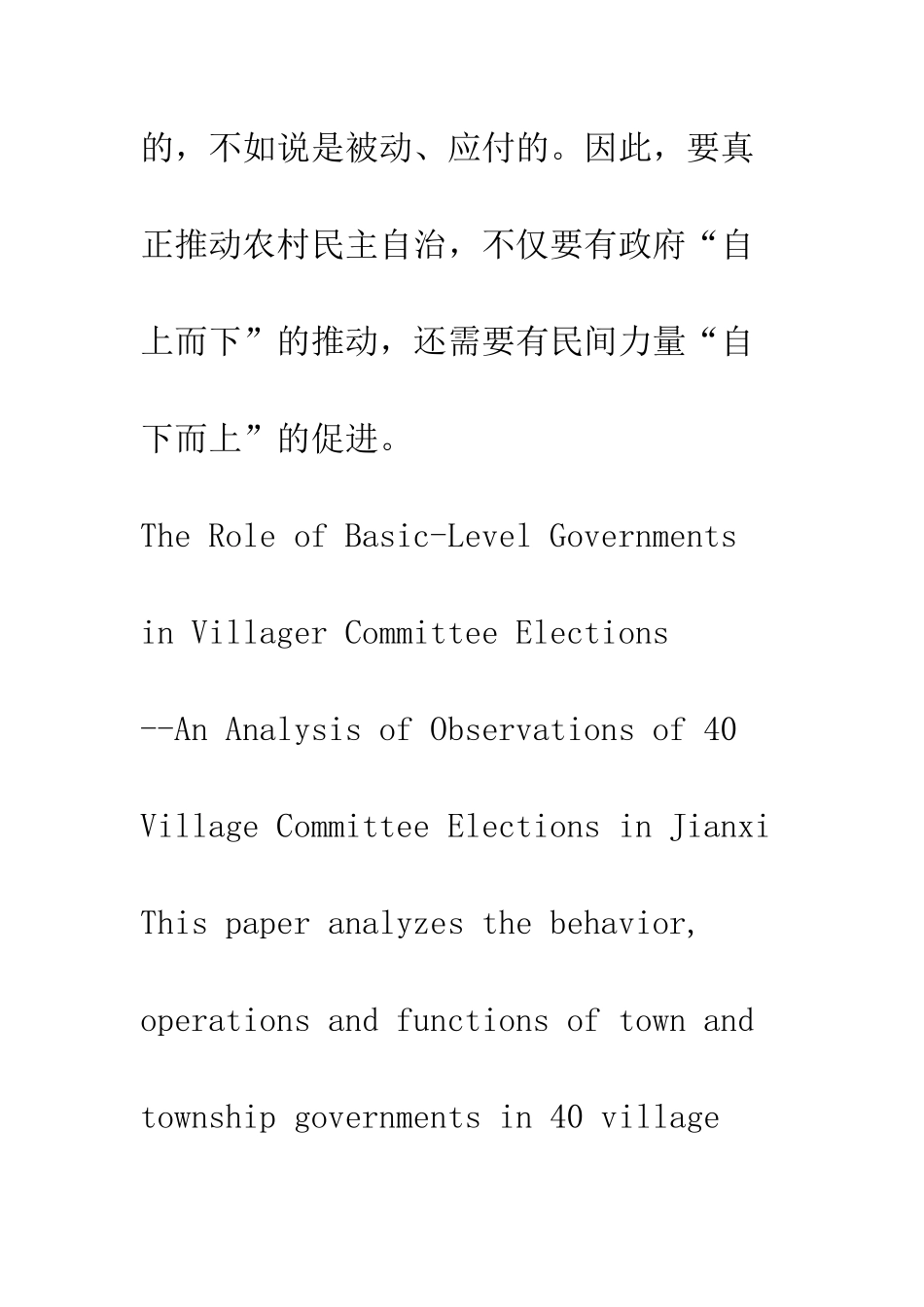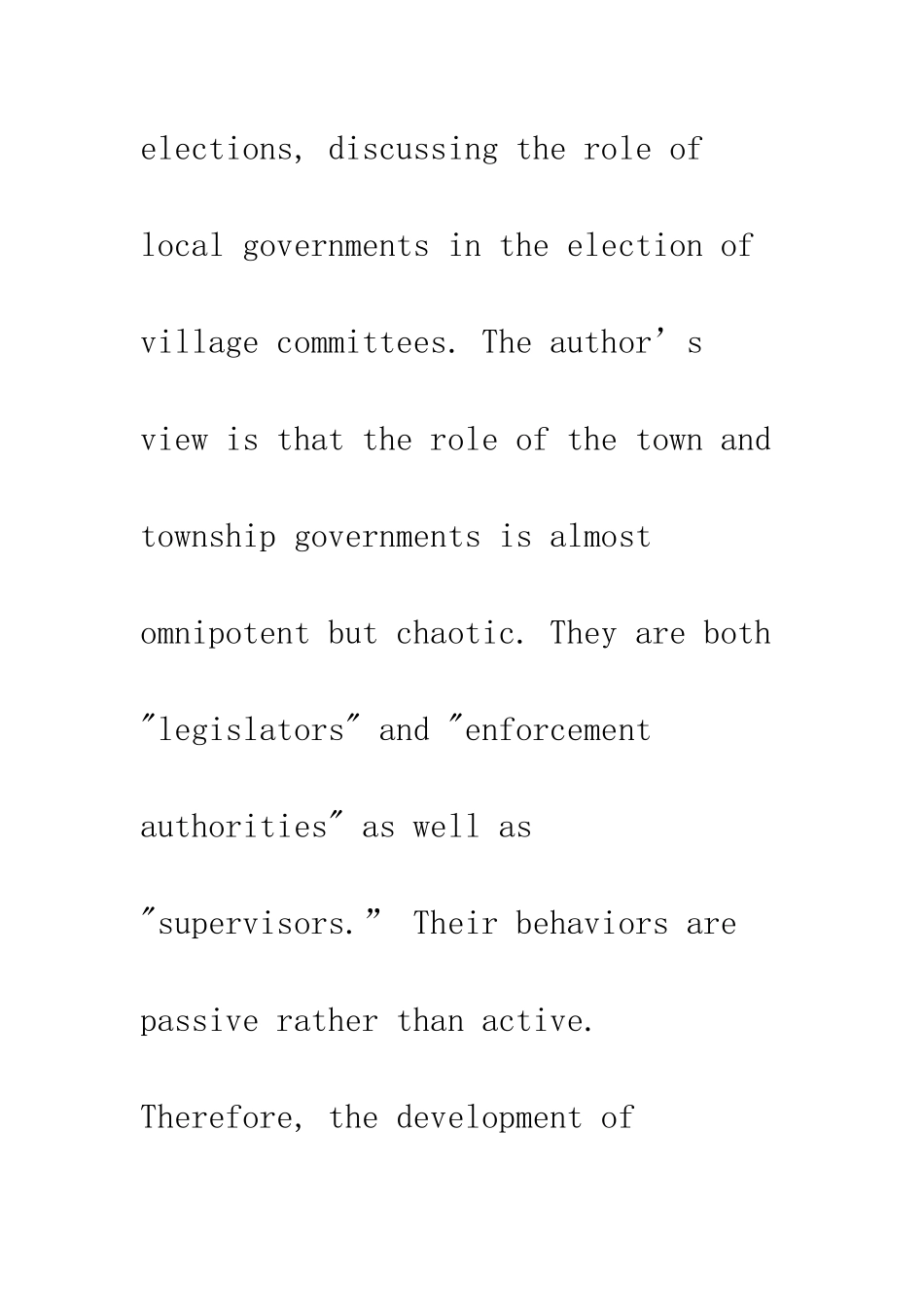村委会选举中基层政府的角色与行为分析——对江西省 40 个村委会换届选举观察的一项综合分析 内容摘要:本文通过分析 40 个村委会换届选举中县、乡政府的具体行为及其运作过程、实际功能,探讨了村委会民主选举中基层政府的角色与作用。笔者的观点是,县、乡政府在推动村委会民主选举中承担了近于“全能”但又是混乱的角色,既是“立法者”,又是“执法者”,还是“监督者”,其行为与其说是积极、主动的,不如说是被动、应付的。因此,要真正推动农村民主自治,不仅要有政府“自上而下”的推动,还需要有民间力量“自下而上”的促进。The Role of Basic-Level Governments in Villager Committee Elections--An Analysis of Observations of 40 Village Committee Elections in JianxiThis paper analyzes the behavior, operations and functions of town and township governments in 40 village elections, discussing the role of local governments in the election of village committees. The author’s view is that the role of the town and township governments is almost omnipotent but chaotic. They are both "legislators" and "enforcement authorities" as well as "supervisors.” Their behaviors are passive rather than active. Therefore, the development of villager self-governance replies on not only governments’ promotion from the top down but also grassroots push from the bottom up.基层政府在村委会民主选举及村民自治中的行为与角色,已引起学者的广泛关注。多数人认同于这样的看法,对中国绝大多数农村而言,村委会民主选举与村民自治是一个需要自上而下由基层政府强力启动并推动的过程。因此,基层政府行为在其中的作用是第一位的。有学者的讨论进一步表明:制约村委会民主选举与村民自治的主要因素也正在于地方基层政府。。不过,我们应当注意的是,这些讨论主要是针对《村组法》正式颂布实施以前而作出的。那么,随着法律的正式施行,情况是否会有变化?本文依据对江西省 40 个村委会换届选举观察就此作一综合分析。鉴于笔者已在另文中讨论了县乡政府在村民直选中的实际影响力和作用力,本文拟通过描述县乡政府在村民直选中的具体行为及其运作过程、实际功能,来讨论分析其...


